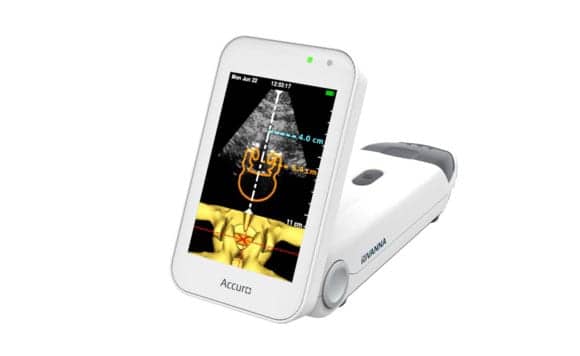Rivanna Medical has begun selling its FDA-cleared Accuro, a handheld, untethered smart phone-sized device that can be carried in the clinician’s pocket and is designed to guide neuraxial anesthesia and perform diagnostic imaging of the musculoskeletal, cardiac, and abdominal anatomies.
The Accuro provides 3D navigation of the lumbar spine to automatically guide clinicians to first-attempt success in administering spinal and epidural anesthesia. Rivanna Medical reports that visualizing lumbar anatomy is essential to predicting the appropriate puncture site, needle trajectory, and depth of needle insertion to reach the epidural space.
The epidural space in an average adult is only about 10 mm in diameter and 5 mm in thickness. According to Rivanna Medical, if the needle misses this target, it can puncture the outermost membrane enveloping the spine. This may cause cerebrospinal fluid (CSF) to leak into the epidural space, which leads to a ‘spinal headache’ that ranges from mild to debilitating.
The company says its Accuro imaging device provides automatic identification of epidural location and depth. Data from a recently completed clinical study at the University of Virginia School of Medicine showed that Rivanna Medical’s Accuro device was 94% successful in automatically identifying the epidural space via its real-time 3D image automation technology, SpineNav3D.
For more information about the Accuro imaging product, visit the Rivanna Medical website.




